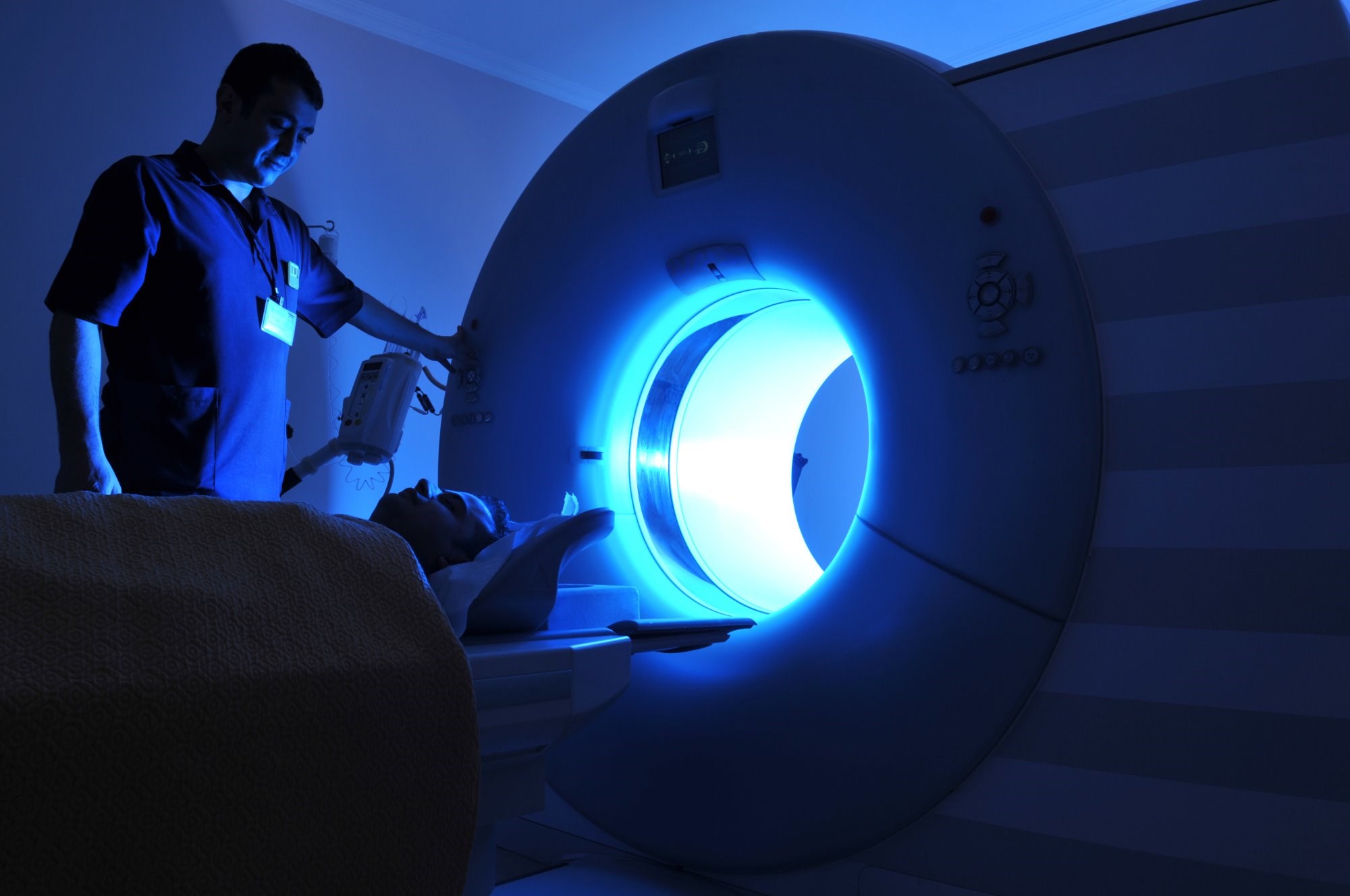
By targeting prostate-specific membrane antigen, a molecule radiolabeled with lutetium-177 is expected to deliver high doses of beta radiation to distant metastases.
SAN FRANCISCO — Treatment with a novel targeted radiation therapy improves survival of men with metastatic castration-resistant prostate cancer (mCRPC), according to the findings of a study presented at the 2019 Genitourinary Cancers Symposium.1
The therapy consists of a small molecule that has a high affinity for prostate-specific membrane antigen (PSMA) that is radiolabeled with lutetium-177. The therapy, called lutetium-177 PSMA-617 (LuPSMA), purportedly delivers high doses of beta radiation to cancer metastases.
In a phase 2 trial that included 50 men with mCRPC who progressed despite treatment with standard therapies, the median overall survival times was 13.3 months (95% confidence interval [CI], 10.5–18.0), which is longer than the average 9-month survival time for men with this stage of disease, according to investigators. Survival time was significantly longer among patients who had a PSA decrease of 50% or more compared with those who had a smaller PSA decrease (18.0 vs 8.7 months). Median PSA progression-free survival was 6.9 months (95% CI, 6.0–8.7).
A 50% or greater decline in PSA was achieved in 32 of 50 patients (64%; 95% CI, 50%–77%), including 22 patients (44%; 95% CI, 30%–59%) who experienced a PSA decline of 80% or more. The most common toxicities attributed to treatment were transient G1-2 dry mouth in 68% of patients, G1-2 nausea in 48%, and G1-2 fatigue in 36%. G3-4 toxicities attributed to the treatment were infrequent, with thrombocytopenia in 10% of patients, and anemia in 10%.
“In this trial, we treated men who would have otherwise been directed to palliative care,” lead investigator Michael Hofman, MBBS, of the Peter MacCallum Cancer Centre in Melbourne, Australia, said in a statement prepared by the conference organizers.2
The study participants received prior docetaxel (84%), cabazitaxel (48%), and abiraterone acetate and/or enzalutamide (90%). The median PSA doubling time was 2.6 months.
The investigators previously reported favorable activity and toxicity with LuPSMA in a study of 30 patients with mCRPC.
“The results of this 50-patient study provide further confidence to our previously published 30-patient study, demonstrating high response rates and low toxicity in men with metastatic castration-resistant prostate cancer who have progressed after conventional therapies,” Dr Hofman said in a presscast held in advance of the conference, which is sponsored by the American Society of Clinical Oncology (ASCO), Society of Urologic Oncology (SUO), and the American Society for Radiation Oncology (ASTRO).
“As a clinician, I will tell you that this is a very intriguing agent,” commented Robert Dreicer, MD, MS, an expert spokesperson from the American Society of Clinical Oncology (ASCO), who moderated the presscast.
Two randomized controlled trials of LuPSMA are under way: the ANZUP/Prostate Cancer Foundation of Australia TheraP trial (177Lu-PSMA-617 vs cabazitaxel) (ClinicalTrials.gov Identifier: NCT03392428) and the Endocyte VISION trial (177Lu-PSMA-617 vs best standard of care) (ClinicalTrials.org Identifier: NCT03511664).
Read more of Cancer Therapy Advisor‘s coverage of the 2019 Genitourinary Cancers Symposium by visiting the conference page.
References
- Hofman M, Violet JA, Hicks RJ, et al. Results of a 50 patient single-centre phase II prospective trial of lutetium-177 PSMA-617 theranostics in metastatic castrate-resistant prostate cancer. Data presented at: the 2019 Genitourinary Cancers Symposium; San Francisco, CA; February 14-16, 2019. Abstract 228.
- American Society of Clinical Oncology (ASCO). Phase II trial shows novel, radiolabeled PSMA-targeted treatment provides high response rates in men with metastatic prostate cancer [press release]. Published February 11, 2019. Accessed February 11, 2019.





